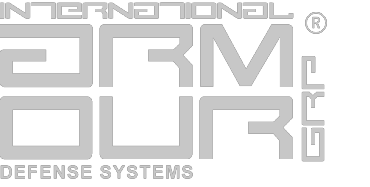ISM Code Management
The International Safety Management (ISM) Code is an international standard for the safe management and operation of ships and for pollution prevention.
Key Components of Effective ISM Management
1. Safety Management System (SMS): We would likely develop and implement a customized Safety Management System for each client, ensuring that the system is tailored to the specific needs and operations of their vessels.
This would include procedures for all safety and environmental protection aspects of ship operation.
2. Documentation: Maintaining comprehensive documentation that details all aspects of the SMS and ensuring it is accessible and understood by all crew members and relevant shore personnel.
3. Compliance and Audits: Regular audits, both internal and conducted by external bodies, to ensure compliance with the ISM Code.
We might assist clients in preparing for these audits and help implement corrective actions based on audit findings.
4. Training and Competence: Providing training programs to ensure that all shipboard personnel are competent in safety and emergency procedures related to their role.
ISPS Code Management
The International Ship and Port Facility Security (ISPS) Code is part of the Safety of Life at Sea (SOLAS) Convention and is designed to ensure security measures are in place for ships and port facilities.
Key Components of Effective ISPS Management
1. Security Assessment and Planning: We could help conduct comprehensive security assessments for ships and port facilities to identify potential security threats and develop security plans tailored to mitigate these risks.
2. Implementation of Security Measures: Based on the assessments, implementing necessary security measures such as access control, surveillance systems, and procedures for handling security incidents.
3. Training and Drills: Training staff and conducting regular security drills to ensure everyone is prepared to respond effectively to security threats.
4. Compliance and Updates: Ensuring all security measures and procedures comply with the ISPS Code and keeping up to date with changes in regulatory requirements or security threats.
Global Reach and Client Management
Given our global operations, managing ISM and ISPS Codes for clients worldwide likely involves:
Regional Compliance: Understanding and adhering to regional variations in maritime security regulations and practices.
Multilingual Communication: Offering services in multiple languages to ensure clear communication with international crews and port officials.
Technology Utilization: Using technology to manage and monitor safety and security systems remotely, ensuring that ships and ports adhere to the highest standards even when direct oversight is not possible.
For a company like Armour International, providing effective ISM and ISPS management services globally would involve a strong focus on customization, compliance, and proactive risk management. It would also likely leverage technology and local partnerships to deliver these critical services effectively across different regions and regulatory environments.
This approach not only helps ensure the safety and security of maritime operations but also supports compliance with international laws and standards, enhancing the overall reputation and efficiency of the shipping operations it supports.
In the realm of modern maritime operations, safety and security are not merely operational requirements but are pivotal to the integrity and efficiency of global shipping.
The implementation of the International Safety Management (ISM) and International Ship and Port Facility Security (ISPS) codes serves as the cornerstone of our strategic approach to managing these imperatives.
Commitment to Safety and Environmental Protection
As managers responsible for the ISM/ISPS protocols within our fleet, we shoulder the critical responsibility of ensuring the safety of our vessels, preventing human injury or loss of life, and safeguarding the marine environment from pollution and damage. Our commitment extends beyond compliance, aiming to embody the highest standards of maritime safety and environmental stewardship.
Policy Implementation and Resource Allocation
Our company has established a robust policy that clearly articulates our safety and security objectives. We are committed to providing the necessary resources, including shore-based support and continuous investment in safety training and equipment, ensuring that our policy is effectively implemented across all facets of our operations.
Leadership and Expertise in Safety Management
The ISM/ISPS Department is led by a highly skilled and qualified Technical Director, who also serves as the Designated Person Ashore (DPA), alongside an experienced Deputy DPA who holds the role of Company Security Officer (CSO).
Together, they ensure round-the-clock monitoring and support for our ships and their crews. This leadership structure ensures a clear and efficient response chain, critical for addressing any safety or security issues that may arise.
Special Focus on High-Risk Areas
A specific area of concern for our ISM/ISPS management is the presence of piracy in High-Risk Areas (HRAs).
The unique operational requirements of our vessels often necessitate transit through these zones, where heightened security measures are imperative.
To this end, we have implemented extraordinary security protocols, including the provision of armed escorts and onboard security teams, to protect our vessels and crew from piracy threats.
These measures not only comply with but exceed standard security practices, ensuring our vessels maintain the utmost safety and operational continuity.
- Preparation of ISM and all documents/manuals required and Implementation of ISM in Offices and on board.
- Training office personnel, Officers and Crew on board in all ISM requirements
- Internal ISM Audits for Officers and on Board the vessels
- Assisting the Masters during Port State control inspections
- ISM Audits for various flags and issuing of DOC and SMC Certificates
- SPS on board security Check List
- ISPS on board SSA (Ship Security Assessment)
- ISPS preparation of SSP (Ship Security Plan)
- Training the Officers and Crew in the ISPS system
- Training of SSO ship security Officer and crew on board for security
- Internal Audits on board for ISPS security requirements
- ISPS Audits for various Flag States and issue of ISPS Certificates
In conclusion, our proactive and diligent management of ISM/ISPS codes exemplifies our unwavering commitment to the principles of maritime safety and security.
By continually refining our strategies and investing in the capabilities of our personnel, we uphold and advance the safety standards that are vital to the shipping industry’s success and resilience.



